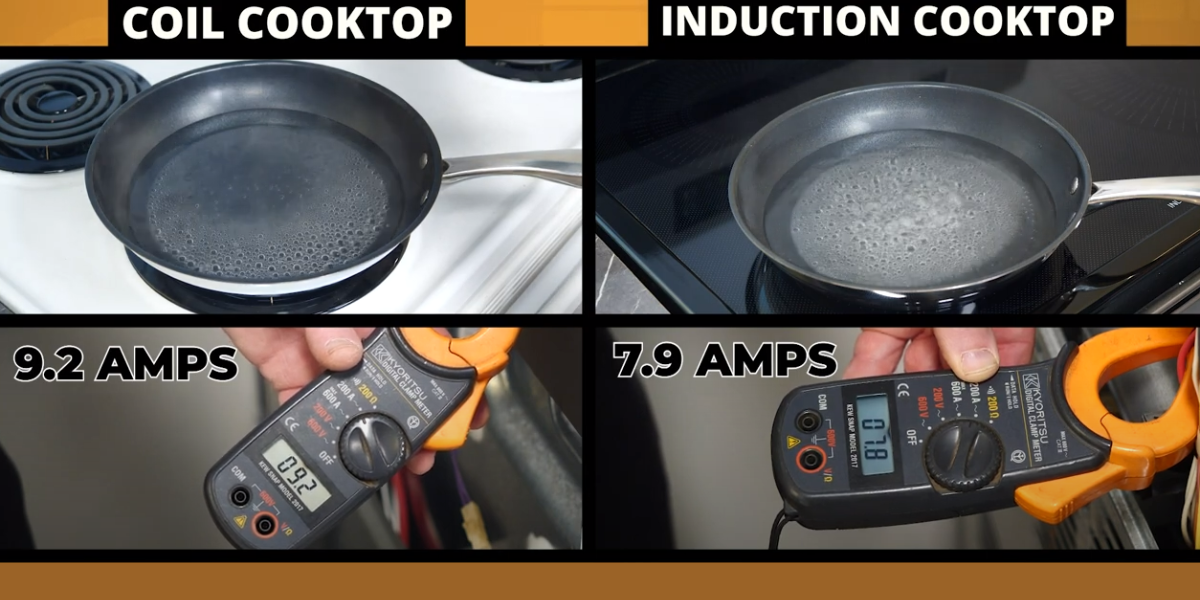Do Energy-Efficient Appliances Really Save You Money?
A Full Guide on How to Save Watts and Cents
As energy prices continue to rise, you may be looking for ways to reduce the energy consumption in your home and save money on your power bills. One of the most popular ways to do this today is by replacing the older, less efficient appliances in your home with newer, energy-efficient models. You may also be considering whether to buy new parts for your older appliances. But are energy-efficient appliances really worth the investment? There are three main factors to consider; the cost, the features and the reliability of the appliances. Let's have a look together!
How Much Do Energy-Efficient Appliances Cost?
As you may already know, many energy-efficient appliances typically have a higher initial cost than the older, less energy-efficient models. This is because they use newer technology and design features that allow them to provide the same quality of services while using less power than older models. Additionally, there may be extra costs associated with installing energy-efficient appliances. You may need to hire a professional technician to install a new HVAC system or to rewire your home in order to install an energy-saving dryer for example.
Despite the higher upfront cost, it is important to note that many energy-efficient appliances will help you to save money over their life time in the form of reduced energy bills. Therefore, you will be able to recoup the cost of the appliance, and then some, as the years go by. Moreover, many companies and local governments offer rebates in the forms of discounts and refunds for customers who are interested in purchasing energy-efficient appliances. So, be sure to take a look at what incentives may be offered in your area!
What Features Do Energy-Efficient Appliances Have?
As mentioned before, appliances that are recognized as energy-efficient use various types of new technology to reduce the amount of energy they require while in use without reducing the quality of the service they provide.
Refrigerators and Freezers: Use advanced insulation materials and improved compressor technology to retain more cold air. This allows them to reduce the amount of power they need to maintain the correct refrigerator/freezer temperature. Some models also have an automatic defrost feature that saves energy by preventing ice from building up in the fridge.
Dryers: Use sensor detection to check the optimal temperature of the dryer and avoid overheating and to check when laundry is dry. The machine will then shut off so that it does not run longer than necessary when in use.
Dishwashers: Use soil sensors which detect the amount of food particles in the water after rinsing and then automatically adjust the wash cycle so that they do not use more energy or water than necessary.
Ranges: Use induction cooktops which use magnetic fields to heat your cookware directly, which is more efficient than both gas and electric burners. Some ranges have burners that use less energy while still providing high heat for that perfect sizzle as well as self-cleaning capabilities to reduce the need for harsh chemical cleaners! But don't take our word for it - check out the energy usage between an old cooktop and an induction cooktop!

How Can You Verify the Energy-Efficiency of the Appliance?
Take a look at an Energy Guide Rating! This is a label that shows that an appliance has been tested and meets the strict efficiency guidelines set by the relevant energy-efficiency regulatory authority that governs your area such as the EPA in the U.S.A or NRCan in Canada. The label shows information such as the estimated annual energy consumption of the appliance, how the appliance compares to other models and even the estimated cost of using the appliance. Such guides will help you to make an informed decision before you purchase make a purchase.
Pros of Energy-Efficient Appliances
- Lower Energy Bills: Energy-efficient appliances use less energy than standard appliances, which results in lower electricity bills.
- Environmental Benefits: Energy-efficient appliances reduce the amount of energy needed to run them, resulting in less greenhouse gas emissions, and a smaller carbon footprint.
- Increased Durability: Energy-efficient appliances tend to have better build quality, longer lifespans, and fewer repairs, resulting in savings in maintenance costs.
- Improved Performance: Energy-efficient appliances often have advanced technology that provides improved performance and functionality, such as better temperature control, faster cooking times, and quieter operation.
Cons of Energy-Efficient Appliances
- Higher Upfront Cost: Energy-efficient appliances are typically more expensive to purchase than standard appliances.
- Limited Options: Energy-efficient appliances may have limited options in terms of models and features available.
- Compatibility Issues: Some energy-efficient appliances may require specific wiring or infrastructure in the home, which can increase installation costs.
- Learning Curve: Energy-efficient appliances may require a learning curve to operate them correctly, as they may have different settings and features than standard appliances.
So, can energy-efficient appliances really save you money? The short answer is yes, but as you have seen, there are several factors you'll need to consider before you can make the best decision for your home. Energy-efficient appliances often have a higher upfront cost than traditional models, which can be a barrier for some. However, the long-term cost savings and environmental benefits of energy-efficient appliances may outweigh the upfront cost and other potential drawbacks. Ultimately, the decision to invest in energy-efficient appliances will depend on your budget, needs, and priorities.
Additionally, if you would like to find other ways to make your home more eco-friendly and budget-friendly, you can perform routine maintenance on your appliances, such as cleaning the lint filter and vents in your dryer, cleaning the condenser in your refrigerator, unplugging appliances when they are not in use, and adjusting the thermostat. Check out our full green living guide to see how you could start saving watts and cents right now!
